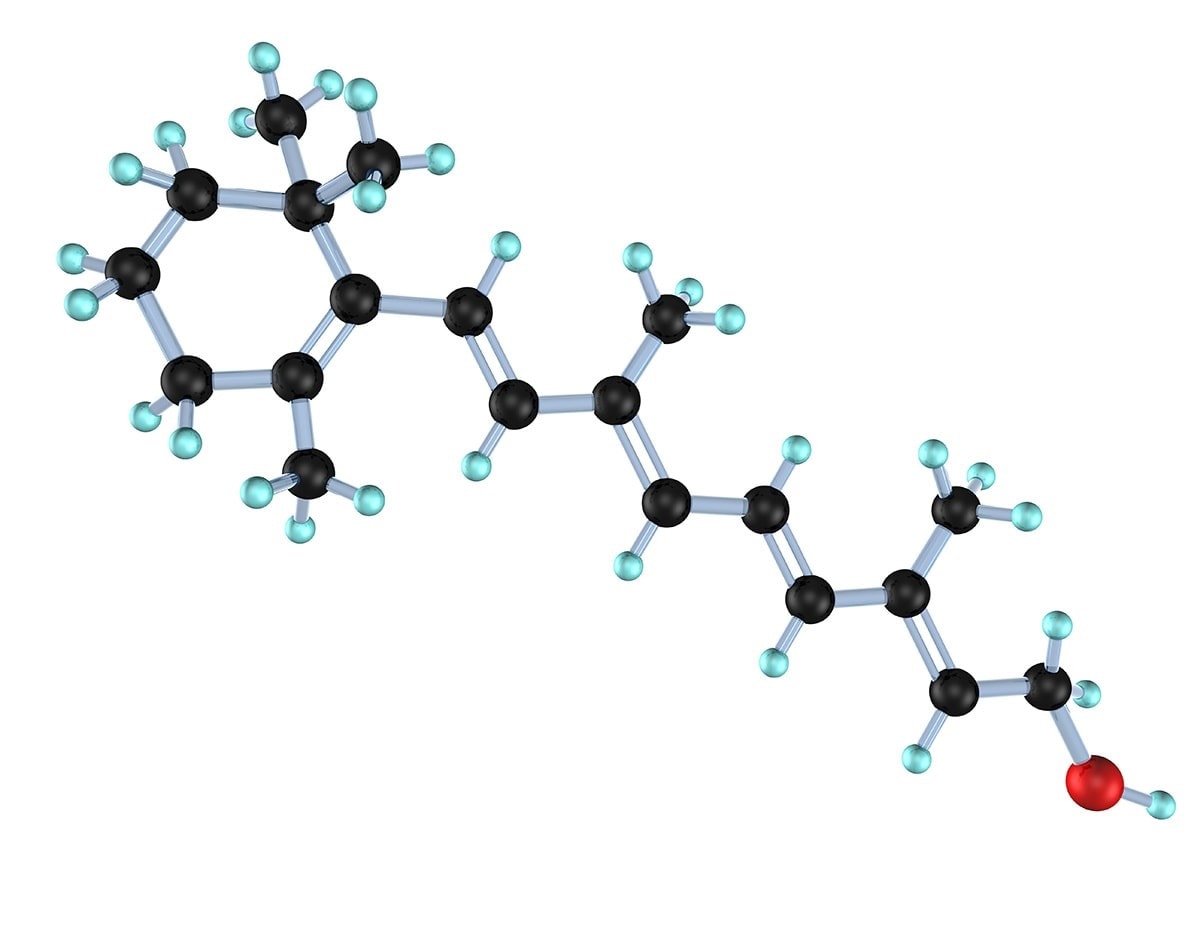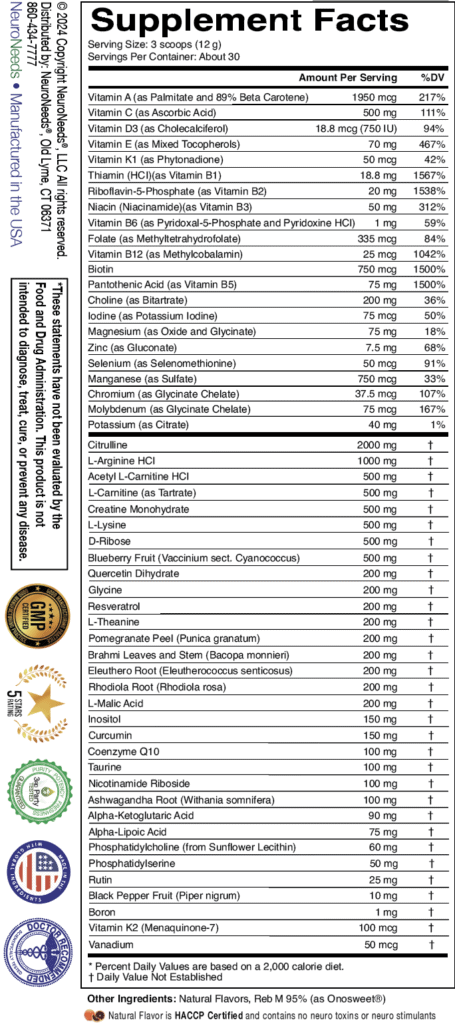$84
Vitamin A
Vitamin A cannot be manufactured by humans and is obtained exclusively from the diet. Vitamin A has multiple functions, including in vision, skin care, growth, and immune response. Vitamin A deficiency is common in the world, although rare in the United States. Vitamin A deficiency can lead to blindness and increased illness with some infections. Vitamin A is used for a variety of conditions, especially of the eye and skin. The primary form of vitamin A in foods of animal origin is retinyl palmitate, and the primary form of vitamin A in foods of plant origin is beta-carotene. Both, retinyl palmitate and beta-carotene are present in ActivNeeds. Unlike most other nutrients, high dosing of retinyl palmitate can be harmful, with multiple potential adverse effects including brain dysfunction, death, and birth defects (if given to a pregnant woman). This is not the case with beta-carotene, in which high doses are well tolerated and birth defects do not occur. About 90% of the vitamin A in ActivNeeds is provided as beta-carotene, and the dose of retinyl palmitate is considered to be safe by both the FDA (USA) and the equivalent in the European Union. However, consult your physician especially if you are taking additional products that may contain vitamin A, are pregnant or may become pregnant, or are taking certain medications, many of which can interact with vitamin A. Side effects are not expected at doses used in ActivNeeds.
Vitamin A in ActivNeeds

About 90% of the vitamin A in ActivNeeds is provided in the non-toxic beta-carotene form. Vitamin A as retinyl palmitate is added in order to provide a wide basis of nutrition, and the moderate dose in ActivNeeds is considered to be safe and well tolerated. Large amounts of vitamin A as beta-carotene is added because of its powerful antioxidant properties. Side effects are unexpected, but do contact your physician if you are on other products containing vitamin A, certain medications, or pregnant.
The term “vitamin A” refers to a group of unsaturated, fat-soluble organic compounds, of which the best known include retinols (such as retinyl palmitate, the animal form) and beta-carotene (the plant form). Vitamin A cannot be manufactured by humans and is thus a true vitamin, obtained exclusively from the diet.
Vitamin A has multiple functions, including in growth and development, for the immune system, and for vision. In the eye, retinol, which is derived from vitamin A, is part of the pigment that absorbs light and makes vision possible. Retinoic acid, derived from vitamin A, is an important hormone-like growth factor for epithelial (e.g., skin) and other cells.
Vitamin A deficiency is common, affecting as many as one out of three children in the world, although rare in the United States. Vitamin A deficiency can lead to blindness and increased illness with some infections.
Topical and oral forms of vitamin A (retinoids) are common treatments for acne and other skin conditions. Vitamin A is also used for pancreatic disease, measles, age-related macular degeneration, dry eye, and a specific type of leukemia.
The primary form of vitamin A in foods of animal origin is retinyl palmitate, which is converted to retinol in the small intestine. The primary form of vitamin A in foods of plant origin is beta-carotene. Both, retinyl palmitate and beta-carotene are present in ActivNeeds. Both forms have different, yet important, uses in nutrition.
Unlike most other nutrients, high dosing of retinyl palmitate can be harmful. Adverse effects can include dizziness, nausea, headaches, confusion, coma, and death. Birth defects can occur if high dosing is given to a pregnant woman. This is not the case with beta-carotene, in which high doses are well tolerated and birth defects do not occur. However, consuming high amounts of beta-carotene can turn the skin yellow-orange, called carotenemia, but this is harmless. In ActivNeeds®, about 90% of the vitamin A is provided in the safe beta-carotene form. The upper limit for retinyl palmitate in adults 19 years and older is 3,000 mcg. The amount in ActivNeeds, taken as directed, is about under 200 mcg, which is considered to be safe by both the FDA (USA) and the equivalent in the European Union. However, because vitamin A (as retinyl palmitate) may be present in more than one supplement taken, consult your physician regarding whether the total dose may be excessive, especially if you are pregnant or may become pregnant. Vitamin A supplements may interact with certain medications, including birth control pills, blood thinners (Coumadin), acne medicines (isotretinoin), and certain cancer treatments.
Laboratory testing can reveal the presence of a deficiency of this nutrient, but in most cases, is not likely to have clinically utility.
How and Why is Vitamin A Used in ActivNeeds
About 90% of the vitamin A in ActivNeeds is provided in the non-toxic beta-carotene form. Vitamin A as retinyl palmitate is added in order to provide a wide basis of nutrition, especially given its important role for the eyes. The dose in ActivNeeds is low and considered to be safe by regulatory agencies. Large amounts of vitamin A in the safe, plant-derived form of beta-carotene is added because of its powerful antioxidant properties. Side effects are unexpected, but do contact your physician if you are on other products containing vitamin A, certain medications, or pregnant.
Order ActivNeeds Today
Formulations










